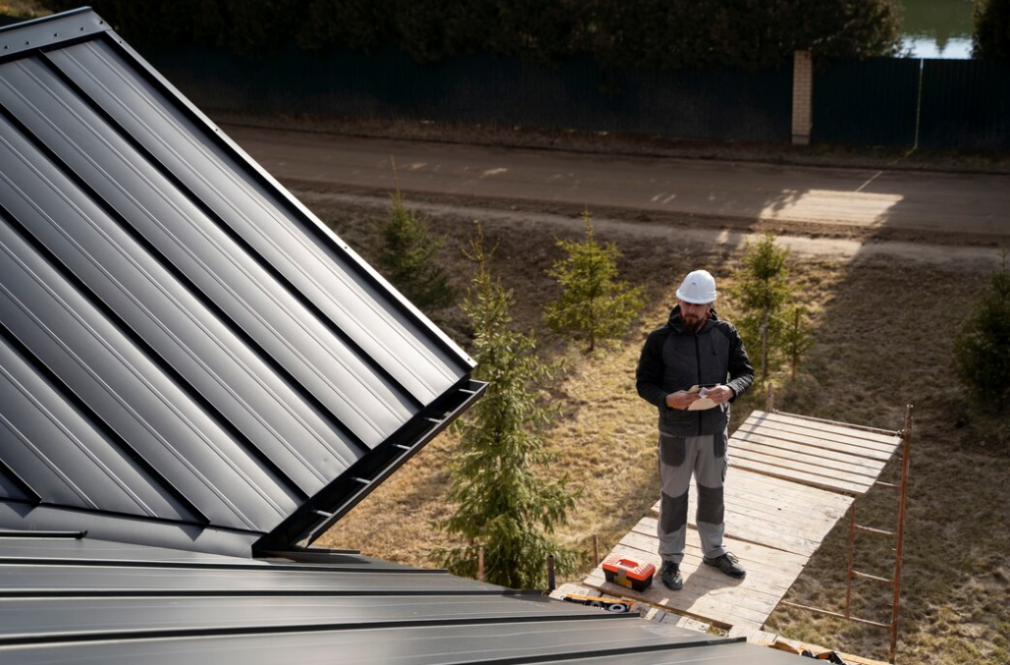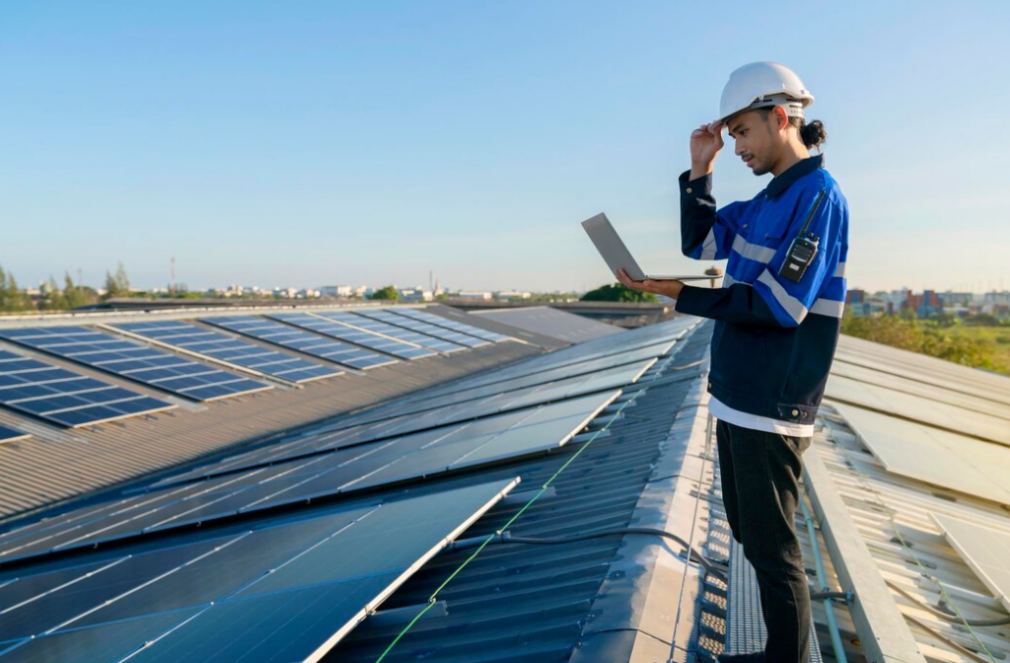Which Solar Hot Water System Is the Most Efficient?
Electric water heaters significantly contribute to our electricity bills. While hot water is an essential part of our daily lives, electric systems can be both costly and unreliable, particularly during power outages. Such situations can disrupt the hot water supply to our homes. However, there exists a solution that allows for cost savings while ensuring uninterrupted access to hot water.
This is where solar water heaters come into play, providing a dependable source of hot water. Solar hot water systems diminish your dependence on the electrical grid by harnessing thermal energy from the sun to heat water.
In this article, we will provide you with a comprehensive understanding of solar water heaters, identify the most efficient solar water heater, and recommend three top-notch heaters suitable for your Orlando home.
Table of Contents:
- How Solar Water Heaters Operate;
- Diverse Solar Water Heater Options:
- Active Solar Water Heaters:
- Direct Systems;
- Indirect Systems.
- Passive Solar Water Heating Systems:
- Thermosiphon Systems;
- Integrated Systems.
- Active Solar Water Heaters:
- Advantages of Solar Water Heating Systems:
- Affordable Investment;
- Environmentally Responsible.
- Choosing the Ideal Solar Hot Water System for Your Needs:
- Daily Water Usage Considerations;
- Consideration of Climate Conditions.
- Considerations for Portability in Solar Water Heaters;
- Top Solar Water Heating Systems for Your Orlando Home:
- Heliatos Hybrid Solar Water Heater Kit;
- Sunbank Solar Hot Water System;
- Duda Solar 30 Tube Water Heater Collector.
- Three Major Categories of Solar Hot Water Systems;
- FAQ;
- Conclusion.
How Solar Water Heaters Operate
When it comes to solar water heaters, understanding their fundamental components is key:
- Storage Tank: The heart of the system, where hot water is stored for later use;
- Solar Collector: This component does the heavy lifting by harnessing thermal energy from the sun.
As the name implies, the solar collector plays a pivotal role in the process. It consists of an insulated box with intricate tubes, and when water flows through these tubes, something remarkable happens. The solar collector captures heat from the sun and transfers it to the water, effectively storing it in the storage tank.
In some setups, heat exchangers are also incorporated. These devices heat the water as it flows through copper coils within the tank. This exchange occurs when the collected heat is transferred to the tank, causing cold water to enter the collector.
It’s important to note that solar water heaters operate differently from solar panels. Unlike solar panels that convert solar energy into electricity, solar water heaters skip the energy conversion step altogether. Instead, they directly utilize the sun’s thermal energy to heat water, making them a highly efficient and eco-friendly choice for hot water needs.
Diverse Solar Water Heater Options
Solar water heaters come in various types, each tailored to specific applications. Assessing their efficiency depends on the intended use. In residential settings, active and passive solar water heaters are the prevalent options. This article delves into the specifics of each type.
Active Solar Water Heaters
Active solar water heaters stand out due to their sophisticated features, which include controls and circulating pumps, albeit at a higher cost compared to other types. They can be further categorized into the following subtypes:
- Direct Systems: Direct circulation systems function by heating your home’s water supply directly through solar collectors and subsequently pumping it back into the house. This design ensures immediate access to hot water, making it ideal for those who require instant hot water solutions;
- Indirect Systems: Indirect circulation systems employ glycol or antifreeze to transfer heat from the solar collector to your home’s water system. This approach proves highly efficient in colder climates as it prevents the water from freezing, ensuring a consistent supply of hot water.
Passive Solar Water Heating Systems
Passive solar water heaters provide an alternative approach to harnessing solar energy for heating water. Unlike their active counterparts, these systems do not rely on pumps for water circulation. While passive systems may be somewhat less efficient than active ones, their simplicity, reliability, and cost-effectiveness make them a popular choice. Moreover, passive solar water heaters offer a diverse range of options, each suited to specific applications. Let’s delve into the various categories within passive solar heating systems.
Thermosiphon Systems
Thermosiphon systems exemplify the ingenious use of water’s natural behavior, which becomes lighter as it heats up. These systems can be found in a variety of climates, often integrated at the base of water storage tanks. They operate by facilitating the movement of hot water into the storage tank through a carefully interconnected plumbing system. Simultaneously, cold water descends into the tubing located at the tank’s lower section, thus promoting a continuous and self-sustaining circulation of water.
Integrated Systems
Integrated systems, also known as passive integral collector-storage systems, leverage metal plates to gradually heat water as it passes through them before returning it to the primary storage tank. These systems exhibit optimal efficiency in regions blessed with abundant sunlight or in situations where the demand for hot water primarily occurs during daylight hours.
Advantages of Solar Water Heating Systems

Solar water heating systems provide numerous benefits when compared to conventional gas or electric water heaters. Here are some key advantages to consider:
Affordable Investment
According to the Department of Energy, installing a solar water heater can result in a significant reduction in water heating bills, typically by 50% to 80%. Additionally, since sunlight is a free and abundant resource, solar water heaters offer protection against future fuel shortages and price fluctuations.
While there is an initial cost associated with installing solar systems, they prove to be more economical in the long term. This is primarily because they reduce your dependence on the electrical grid, leading to substantial savings on your electricity bills. The extent of these savings depends on factors such as your water heater’s energy factor rating and your household’s hot water consumption.
Environmentally Responsible
Sunlight serves as a renewable energy source that does not contribute to environmental pollution and is virtually inexhaustible. In contrast, most electrical power stations rely on fossil fuels like coal, which release harmful emissions and are finite resources. This stark contrast makes solar energy an environmentally friendly choice, promoting a greener and sustainable future.
Choosing the Ideal Solar Hot Water System for Your Needs
As previously mentioned, solar hot water systems are available in various configurations, and there’s no one-size-fits-all solution when it comes to their efficiency. What’s considered efficient for one household’s requirements might not meet the expectations of another.
Therefore, the key to determining the most suitable solar hot water system lies in understanding how you intend to utilize it. Before making a decision, here are some essential factors to consider:
Daily Water Usage Considerations
- Your daily water requirements are closely tied to the size of your household;
- For a small household, a solar water heating system with a capacity of 30 to 40 gallons may suffice;
- In the case of a larger household, you may find that dual 40-gallon systems or even an 80-gallon system are more appropriate;
- It’s advisable to gauge your average water consumption before determining the capacity of your system.
Many solar water heaters include a storage tank, which proves indispensable for larger households. A tank substantially boosts the volume of hot water available for each member, ensuring that shortages are kept at bay.
Conversely, if you intend to use your system for camping or seasonal cabins, tankless options can be a viable choice. These systems offer on-demand heating, adapting to the prevailing weather conditions. They typically have a capacity of approximately 5 gallons, sufficient for one or more quick showers.
Consideration of Climate Conditions
- The significance of your local climate’s impact on the efficiency of your solar water heating system cannot be overemphasized;
- In regions with a hot climate and abundant sunshine, there exists a wealth of thermal energy available to efficiently heat your water supply.
Conversely, if you reside in an area characterized by frequent rain, cloud cover, or cold temperatures, your system may struggle to consistently generate the required energy. Prolonged periods without sunshine can result in a lack of hot water, especially if you haven’t made contingency plans, as the solar power source becomes unavailable.
For those residing in climates with limited sunlight, it’s advisable to consider installing a supplementary electrical heating system that operates in conjunction with your solar water heater. These electric heaters can be used as needed, allowing you to deactivate them when ample sunshine is available and reactivate them during cloudy days. Additionally, you can opt to separately purchase backup electric units for added reliability.
Furthermore, climate conditions also influence the choice of solar water heating systems. In tropical climates, active direct systems and passive integrated systems are highly efficient, as they harness the region’s abundant sunlight to provide swift access to hot water.
In contrast, for those living in cold or freezing climates, active indirect systems prove most efficient. These systems utilize specialized fluids like glycol and antifreeze to transfer heat to the water, thereby preventing freezing and ensuring a steady supply of hot water.
Considerations for Portability in Solar Water Heaters
If you have plans for activities such as camping or hiking where you require hot water on the go, you may want to explore the option of a portable solar water heater. These systems typically utilize a straightforward solar panel to heat a modest quantity of water, usually around five gallons. They often come equipped with a robust bag, pump, or hose for convenient use. Some even feature a temperature gauge, allowing you to monitor the water’s temperature and prevent overheating.
It’s important to note, however, that portable solar water heaters are primarily designed for outdoor use and are not suitable for household indoor applications. Their limited water capacity and reliance on direct sunlight make them less practical for residential use.
In addition to portability, you should also consider the size of the solar water heater. Some models can weigh up to 400 lbs., so it’s essential to ensure that your installation location, whether on your roof or the ground, can safely support the weight. Furthermore, you may need to assess whether you have more available space on your roof or the ground to determine the optimal placement of your system based on space availability.
Top Solar Water Heating Systems for Your Orlando Home
Taking into account various crucial factors, we have curated a list of the three best solar hot water systems perfectly suited for residences in Orlando.
| Solar Water Heater | Key Features |
|---|---|
| Heliatos Hybrid Kit | Four heating panels, 10W solar panel, flexible capacity adjustment, hybrid design, easy installation (no soldering), not suitable for freezing conditions. |
| Sunbank Hot Water System | Passive system, 40-gallon capacity (80-gallon option), exceptional efficiency (92%-96%), high-density insulation, evacuated tube collector, user-friendly installation (complete system), rooftop or ground installation, seamless integration. |
| Duda Solar 30 Tube Collector | Adaptable tube configurations, impressive efficiency (93%-96%), multiple installation options, hailstone-resistant, durable design, caution with water pressure (avoid >87 psi). |
Heliatos Hybrid Solar Water Heater Kit
- The Heliatos Hybrid Solar Water Heater Kit is a versatile solution that includes four heating panels, a 10W solar panel to power the circulation pump, and all necessary fittings;
- This kit offers adaptability, allowing you to tailor the system’s capacity to suit your specific household needs by connecting the panels accordingly.
What distinguishes this kit is its hybrid design, providing you with flexibility in how you use it. You can employ it as a standalone solar water heater or integrate it with your existing gas or electric heater. This feature ensures a continuous supply of hot water even during overcast or rainy days.
Installation of the Heliatos heater is hassle-free, eliminating the need for soldering due to the lightweight panels and included brass fittings. While it performs optimally on rooftops, you also have the flexibility to install it in a location of your preference.
Orlando’s abundant year-round sunshine makes the Heliatos heater an excellent choice for the area. It’s worth noting that this system is not designed to withstand freezing conditions, which is not a concern in the snow-free Orlando climate. Additionally, Heliatos provides peace of mind with a standard one-year warranty and a ten-year leak coverage.
Sunbank Solar Hot Water System
- The Sunbank solar water heater presents a passive system boasting a 40-gallon capacity, with the option of an 80-gallon capacity for households with higher water demands;
- What sets this product apart is its exceptional efficiency, capable of harnessing approximately 92% to 96% of solar energy;
- This remarkable performance is attributed to its high-density polyurethane insulation and evacuated tube collector, ensuring uninterrupted access to hot water on sunny days.
Ease of installation and maintenance make the Sunbank system a user-friendly choice, particularly suitable for those new to solar water heating. It is delivered as a complete system with no separate components, simplifying the assembly process. Whether you prefer rooftop or ground installation, flexibility is at your disposal, contingent upon available space and sunlight exposure. Additionally, it seamlessly integrates with your existing gas or electric water heater. To instill confidence, Sunbank offers a ten-year heat collector warranty, further enhancing its appeal.
Duda Solar 30 Tube Water Heater Collector
- The Duda Solar 30 Tube Water Heater Collector stands out for its remarkable adaptability;
- It offers a range of tube configurations, including 15, 20, 25, or 30 tubes, allowing you to fine-tune the system’s capacity to align with your specific household requirements;
- For instance, the 15-tube setup provides a capacity of 0.9 liters, while the 30-tube configuration offers a substantial 1.7 liters.
Furthermore, these collectors offer various installation options, catering to different roof types. You can opt for the 45-degree option for flat roofs or the 37-degree choice for more sloped rooftops. Notably, these solar water heaters boast an impressive efficiency rating of 93% to 96% and are capable of heating water up to 250°F.
Durability is another strong suit of this system, as it is designed to be hailstone resistant, rendering it suitable for diverse climates. Given Orlando’s occasional storms, you can have confidence that your system will remain intact. However, it’s essential to exercise caution regarding water pressure, as excessive pressure exceeding 87 psi can potentially damage and disrupt the heater’s operation.
Three Major Categories of Solar Hot Water Systems

Solar hot water systems offer an array of options, each designed to harness the sun’s energy for water heating in distinct ways. Understanding the diversity of these systems can empower consumers to make informed choices. Among the three major categories, flat plate collectors, evacuated tube collectors, and heat pump systems, one can find solutions that align with varying climates, budgets, and efficiency requirements. These systems are not only eco-friendly but also cost-effective in the long run, reducing reliance on conventional energy sources and lowering utility bills. Moreover, their adaptability extends to various settings, including residential homes, commercial properties, and even remote off-grid locations. By exploring the possibilities within these three major types of solar hot water systems, individuals and businesses can embark on a sustainable and efficient path to meet their hot water needs.
Frequently Asked Questions
Solar water heaters stand as the most efficient hot water systems available today. Their efficiency is attributed to their reliance on sunlight, which they can harness whenever the sun is shining. Furthermore, they prove cost-effective in the long run by reducing water and electricity bills, despite the initial investment.
The Heliatos Hybrid Solar Water Heater Kit earns the distinction of being the best solar water heating system currently on the market. This accolade is owed to its versatility, adaptability, and straightforward installation process.
Hot water cylinder systems and traditional boilers are well-suited to complement a solar hot water system. However, if your boiler is of the combination type or lacks a hot water cylinder, a solar hot water system may not be compatible.
Solar water heaters rank as the pinnacle of efficiency in the realm of hot water systems. Their reliance on abundant sunlight ensures they can operate optimally whenever the sun shines. While the upfront costs might be steep, the long-term savings on water and electricity expenses validate their efficiency.
When it comes to solar water heating systems, the Heliatos Hybrid Solar Water Heater Kit stands out, thanks to its adaptability, user-friendly design, and straightforward installation process.
While solar hot water systems seamlessly integrate with hot water cylinder systems and standard
Certainly, the leading solar hot water systems encompass flat plate collectors, evacuated tube collectors, and heat pump systems.
Conclusion
Solar water heaters present a compelling opportunity to not only reduce your energy expenses but also contribute to environmental conservation. To pinpoint the most efficient hot water system for your needs, it’s essential to consider several factors, including your local climate, daily water usage, and the size of your dwelling. Regardless of the system you ultimately select, rest assured that solar water heaters offer a reliable and sustainable solution. By harnessing the power of the sun, these systems provide dependable access to hot water while diminishing your reliance on traditional energy sources. Embracing solar water heating not only benefits your budget but also plays a vital role in promoting a greener and more eco-conscious lifestyle. So, whether you opt for an active or passive system, you can anticipate significant advantages in terms of efficiency and environmental responsibility.








